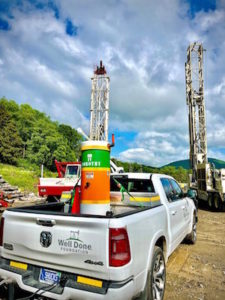With energy costs continuing to rise, wherever you are in the world, individuals and businesses alike are struggling to save money. Our disposable income is having to stretch much further; most of us have to make the most of what we have. Many of us at home have been hit particularly hard, the victims of pay freezes and job losses as businesses and organizations attempt to reduce their overheads and keep their companies afloat.

Employees are Key to Saving Energy
In the United Kingdom, the Carbon Trust – a leading global non-profit organisation dedicated to helping governments, businesses and the public sector speed up the transition towards a sustainable, low carbon economy – is calling for business managers to take control of bottom line waste. How? Tap their employees. Research indicates that less than 25% of workers in the UK have been tasked with helping to save energy in the workplace and fewer than half are concerned about their employer’s energy spending.
As a result, workplaces are missing out on annual savings of more than £300 million (almost $500 million USD) – savings which could be achieved simply by encouraging workers to adopt the type of behaviors that will lead to less energy consumption and greater efficiency. Here are some typical savings:
· Reduce business air travel by 5%: £128m/$213m & 1.5m tonnes CO2
· Reduce lighting by 10%: £55m/$92m & 164,000 tonnes CO2
· Reduce waste sent to landfill by 5%: £49m/$82m & 115,000 tonnes CO2
· Reduce small power use (e.g. kettles, photocopiers, monitors) by 10%: £39m/$65m & 190,000 tonnes CO2
· Reduce temperature by 1°C: £35m/$58m & 194,000 tonnes CO2
A survey of employees by the Carbon Trust has revealed that 60% of workers would be more likely to save energy at work if they were financially rewarded, and 58% would be more likely to do so if their actions were recognised. [2]
Surprisingly, only 22% of employees know what measures they could take to save energy, and a mere 16% are confident that they have the authority to do so. Clearly, businesses need to embark on an employee engagement programme that explains what employees need to do, encour
Any company that undertakes such a program will be richly rewarded in cost savings and increased employee engagement. Furthermore, employees will feel good knowing they’re doing their part to help meet important goals in reducing the emission of carbon dioxide, a primary cause of climate change and global warming. Britain is trying to reach its target of a 26% – 32% reduction in carbon emissions by 2020. Greater efficiency through employee engagement is key to achieving this goal.
Transition to Renewable Energy like Solar and Wind
So, too, is transitioning to renewable energy sources. The UK’s Climate Change Act calls for 15% of the nation’s energy to be derived from solar, wind power and other renewables by 2020. Business and industry have a vital role to play in bringing about these reductions. For example, Secured Energy Bonds plc recently announced a nationwide programme of rooftop solar projects in 22 English schools; the multi-site development will help reduce carbon emissions by around 560 metrics tonnes and will save the schools £1.4m/$1.7m in electricity bills.
In most countries, meeting domestic needs accounts for less than half of all energy consumed. That’s true in the UK too, where domestic energy consumption accounts for only 34% of energy used. Business and industry consume the lion’s share at 43% while commercial and public premises account for another 18%. Clearly, however much we adopt clean, green energy in our homes, targets to reduce carbon emissions and use energy more wisely are unlikely to be met unless the commercial and industrial sector joins in.
[1] http://www.theguardian.com/business/2008/jul/22/greenbusiness.energy?gusrc=rss&feed=environment
NOTE: This post was sponsored by www.energybonds.co.uk/, a subsidiary of CBD Energy Limited. Sponsorships enable us to provide expert content at no cost to you. Our opinions remain our own. Thank you.

















